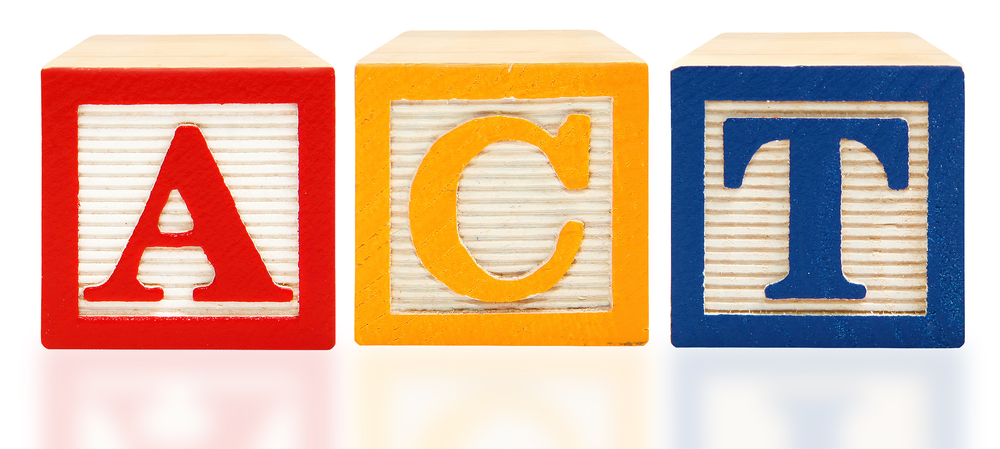
by Erica L. Meltzer | Aug 20, 2015 | Blog, General Tips, The New SAT, Tutoring
As I’ve mentioned elsewhere on this site, I’m often a tutor of last resort. That is, people find their way to me after they’ve exhausted other test-prep options (self-study, online program, private tutor) and still find themselves short of their goals. Sometimes very, very far short of their goals. When people come to me very late in the process, e.g. late spring of junior year or the summer before senior year, there’s unfortunately a limited amount that I can do. Most of it is triage at that point: finding and focusing on a handful of areas in which improvement is most likely.
Not coincidentally, many of the students in this situation who find their way to me have been cracking their heads against the SAT for months, sometimes even a year or more. Often, they’re strong math and science students whose reading and writing scores lag significantly behind their math scores, even after very substantial amounts of prep and multiple tests. They’re motivated, diligent workers, but the verbal is absolutely killing them. Basically, they’re fabulous candidates for the ACT. (more…)

by Erica L. Meltzer | Aug 5, 2015 | Blog, Issues in Education
In theory, at least, I should be the very last person to weigh in on this topic. As I usually joke, most of my students could tutor me in math. My mathematical education was mediocre in every way imaginable, and let’s not even talk about that 200+ point score gap between my SAT and Math and Verbal scores. With competent instruction, I probably could have become an excellent — or at least a decent — math student, but alas, that ship sailed many years ago.
So why on earth should anyone listen to me spout off about what ails math education? Well, because by this point, I know a fair amount about the functions and dysfunctions of the American educational system, about pedagogical trends, and about just how difficult good teaching really is. If you’re willing to hear me out, I’m going to start with an anecdote. (more…)
by Erica L. Meltzer | Oct 2, 2013 | Blog, Tutoring
1) Do not take anything for granted
The more I tutor, the less I assume about what any given student can or cannot do. In fact, now assume that my students do *not* possess any given skill until they’ve clearly demonstrated to me that they’ve mastered it — and that includes reading the words that are actually on the page. Harsh? Perhaps, but I’ve learned the hard way that students, even high scoring ones, often have unexpected and sometimes very large gaps that need to be addressed as quickly and directly as possible.
Here’s a brief sampling of things students of mine have not known:
-SAT passages have arguments; they’re not just “talking about stuff.”
-Introductions and conclusions contain important information
-Discussing an idea is not the same thing as agreeing with that idea; phrases like “some people think” indicate that an author is introducing an idea they do NOT agree with.
-Main ideas usually come before, not after, specific examples.
-The word “important” is important>
-A colon can be used to introduce an explanation.
-“Is,” “are,” and “were” are all parts of the verb “to be.”
-Singular verbs end in an -s; plural verbs do not.
-How to sound out unfamiliar words (thank you whole language!)
And the following vocabulary words: permanent (two students in the same week, both native English speakers — I’m still reeling from that one), surrender, compromise (first meaning), tendency, and chronicle.
2) Take everything your students say in stride
Do not *ever* criticize or make fun or them for not knowing as much as you or your other students. You have no idea what they have or haven’t covered in school, and I’ve met some pretty bright kids who were missing some pretty serious basics. It’s nice that you could figure things out on your own, but alas, the same does not hold true for everyone else. No matter how surprised you are by something they sincerely don’t know (and aren’t just being lazy about), try not to react. Your students are starting from where they’re starting from, and jumping on them for not knowing what *you* think they should know won’t really accomplish anything. Explain what you need to as neutrally as possible (or have them look it up) and move on.
A few weeks ago, a friend of mine had her daughter try a session with a tutor she’d met by chance at the gym. She didn’t know anything about him, but he talked her into a trial session. When he met with her daughter, however, he spent virtually the entire session berating her for not knowing things that “all” his other students knew, and he made a point of telling her that they were scoring 2200+. That’s nice for his other students, but guess who lost a job?
3) You are there to focus on your student, not yourself
Doing well on the SAT and teaching someone else to do well on the SAT are two totally different skills, and what worked for you might or might not work for them. Don’t get hung up on your own accomplishments; they’re only relevant insofar as they allow you to help other people achieve their goals.
4) Be precise, but don’t over-explain
You might be able to recognize all those picky little grammar rules without knowing what anything is called, but your students will most likely need to be taught things directly. Avoid saying things like “well… it’s kinda like this,” or “you’ll just know how to recognize it after a while.”
There’s a fine line between giving someone just enough terminology to be able to understand a concept clearly and giving them so much information that they start to feel overwhelmed. It’s your job to know what information is relevant to the test and how to explain the necessary underlying concepts, and which information is superfluous or likely to be confusing.
5) Don’t ask students whether they understand, just test them or have them explain it back to you in their own words
Kids are not always the most accurate judges of what they know, and plenty of times they’ll just say “yes” to get you off their back. Go by what they do, not by what they say.
6) Adjust your approach to the student’s level and needs
This might sound very obvious, but different students may have very different sets of needs — a student with a weaker background may need things explained slowly and repeatedly, while one with stronger preparation may only need to hear things once. If you treat the former like the latter, they’ll end up confused and frustrated; if you treat the latter like the former, they’ll get bored and tune out. One of the fabulous things about private tutoring is that you don’t have to follow a one-size-fits all approach; you’re free to focus on whatever the student needs to focus on. A student scoring below 600 usually requires a very different approach than one scoring 730 and aiming for 800.
7) Use College Board or ACT material only
This is exceedingly important for Critical Reading: most College Board passages are based on the “they say/I say” structure; they’re designed to gauge students’ ability to follow arguments throughout a passage and keep track of various points of view and attitudes. The passages used in most commercial test-prep books do not include this structure (or, if they do, include it in a too-obvious way), and students will not have the opportunity to practice identifying it and employing the many shortcuts that quick recognition of it can create.
8) Be realistic about what you can and cannot accomplish, and don’t make guarantees
If you’ve only worked with a relatively homogeneous, well-prepared group of students and have never encountered a student who couldn’t sound out “methodology” or didn’t know that “to found” could be a verb, it’s easy to overestimate what you can accomplish. Unless you’ve worked with the extreme low end (300s), persistent 400/500-range scorers, and/or students who were never properly taught to read, you have no idea how challenging it can be to help some students improve.

by Erica L. Meltzer | Nov 5, 2011 | Blog, Issues in Education, SAT Critical Reading (Old Test), Tutoring
A couple of years ago, I tutored a pair of best friends for the SAT. Although one of them was considerably more motivated than the other, both were smart, intellectually curious, and lots of fun to work with. Neither, however, was what you would call a natural standardized test-taker when it came to Critical Reading: both had junior PSAT Reading scores around 500. I worked with them regularly starting in the fall of junior year, and fortunately they both managed to pull up their scores quite a bit: by the spring of their junior year, they were both reliably scoring more than 100 points higher, and both ultimately attained scores in the high 600s.
I wish that I could say that their experiences were typical, but unfortunately they were the exception rather than the rule. Critical Reading scores, unlike Writing and Math scores, are notoriously difficult to raise. While I’ve had many students who did manage to raise their CR scores by 100+ points, I’ve had others whose scores I simply could not get to budge, no matter how many different approaches I tried. (As I explained to their parents, I may be very good at what I do, but I do not actually possess magical powers when it comes to the SAT.) (more…)
by Erica L. Meltzer | Oct 11, 2011 | Blog, SAT Critical Reading (Old Test), Tutoring
I’m writing this in response to the SAT Reading vs. Math post over at Kitchen Table Math. In case you don’t want to read the entire post, the gist of it was essentially that college tend to be more impressed by high Critical Reading scores than they are by high Math scores because SAT Reading scores essentially can’t be raised through tutored (although Catherine was nice enough to cite me as the exception to that rule!). So, as someone who spends a good deal of time on this purportedly impossible task, my response to the assertion that CR is somehow un-tutorable would be no and yes. Or rather, it depends.
Before I launch into my reasons, however, I’d like to say that tutoring CR is one of the hardest parts of my job. For starters, it’s completely exhausting — I spent about three-and-a-half hours one day this past weekend just doing CR (one of those hours was devoted *just* to working on how to determine a main point), and I had to go home and sleep afterward. Teaching CR ruins me for the day; it wears me out mentally so much that I often just have to wander around the city aimlessly for a few hours to recover.
Don’t get me wrong: I enjoy teaching it, and when I finally have a breakthrough with someone, it’s hugely rewarding. But it is hard. I think that this is because teaching CR– at least the way I do it — is not just about the SAT; it’s actually about teaching people to read closely (“Don’t tell me approximately what the author says. Look at the passage — no, look at the passage — and tell me exactly what the author is saying. Exactly as in word for word.”) and to draw relationships between specific words and their functions or the more abstract categories they represent (“Yes, the passage talks specifically about women artists, but the fact that they’re referred to as a group of individuals in the answer choice doesn’t mean you should eliminate it. Think about whom that phrase is referring to”). A few of my students see these relationships naturally. Most do not. Some lack the decoding skills to even begin to draw these relationships, but the majority fall some somewhere in between.
But back to the original question: when it tutoring effective for raising a CR score, and when is it not?
My first response would be, “define raise.” Are we talking 50 points? 100 points? 200 points? Most people will get something out of high-quality tutoring, but it’s probably unrealistic to expect someone with a 550 to try for an 800 — at least in the short term. And the higher scores go, the harder it is to raise them — the margin of error is so tiny, sometimes even a question or two out of 67, that it almost comes down to chance. (For the record, I have gotten people from the mid-600s to 800, but they had virtually no comprehension problems and were willing to work very, very carefully and do everything I said).
The second thing I would say is that the crucial factor isn’t the person’s baseline score but rather their actual skill at understanding relationships between words (for sentence completions) and comprehending the meaning of relatively sophisticated texts. Kids who have no trouble understanding what the passages are literally saying but who work too quickly and fall for wrong answers because they don’t read carefully or think through the questions probably have at least the potential to score in the high 600s or 700s. I’ve had students in this category who started around 500 (junior PSAT) and ended up close to 700 (senior SAT).
On the other hand, someone with a poor vocabulary and trouble perceiving relationships between words, plus weak comprehension skills is probably not going to make it past 600 with strategy-based tutoring alone. If the person is willing to spend very significant amounts of time reading and working on vocabulary independently, that’s a different story, but that is not realistically the case for most high school juniors. I’ve helped students in that situation move from the low to the high 500s, but they all got stuck below the 600 line. In that case, the SAT does precisely what it was designed to do: it reveals persistent weaknesses in comprehension, and there’s really no way to “beat” it past a certain point.
So in general, I think that high-quality CR tutoring can be effective insofar as it allows people to take the fullest advantage of the reading skills they do have. But the “600” and “700 walls” are there for a reason — students who don’t read much on their own and who don’t really understand how texts work (how authors play with language to convey a point, how very common words can be used in unexpected ways to mean different things, and how specific phrasings relate to broader concepts), and no amount of test-prep alone will typically get them past it.


